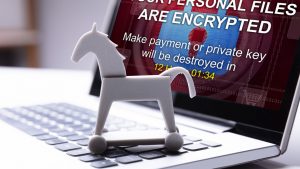
Multi-factor authentication (MFA) stands as a pivotal cornerstone in fortifying the security of online accounts against a backdrop of escalating cyber threats. Its significance lies in its capacity to add an additional layer of defense beyond the traditional reliance on passwords.
By necessitating multiple forms of verification, such as something the user knows (password), something they possess (like a smartphone), or a unique biometric trait (fingerprint or facial recognition), MFA substantially reduces the vulnerability associated with single-factor authentication.
This method significantly enhances the complexity of breaching an account by introducing an element of unpredictability and uniqueness. Even if a malicious actor gains access to a password, they would still be thwarted if they lack the supplementary authentication factors.
Consequently, MFA has emerged as a critical deterrent against unauthorized access, data breaches, and identity theft, particularly as cybercriminals employ increasingly sophisticated techniques to exploit single-factor vulnerabilities.
Its adoption underscores a proactive stance in safeguarding digital identities and sensitive information, offering users a tangible means to mitigate the growing risks posed by the ever-evolving landscape of cyber threats.
Here’s why MFA is so important:
1. Enhanced Security
Traditional authentication methods, like passwords, can be easily compromised through various means such as phishing attacks, data breaches, or guessing.
MFA requires a second form of verification, usually something only you have access to, like your smartphone or a hardware token. This significantly reduces the likelihood of unauthorized access even if your password is compromised.
2. Defense Against Data Breaches
With data breaches becoming increasingly common, it’s possible that your username and password from one site could be used to access your accounts on other platforms if you reuse passwords.
MFA prevents this by requiring an additional piece of information that’s not easily accessible to attackers.
3. Phishing Protection
Phishing attacks involve tricking users into revealing their login credentials. Even if you fall for a phishing attempt and provide your password, the attacker won’t be able to access your account without the second factor of authentication.
4. Stolen Passwords
Passwords can be stolen through various means, such as malware or key loggers. MFA renders stolen passwords insufficient on their own because the attacker would also need the second factor, which is much harder to obtain.
5. Secure Remote Access
For services that offer remote access or sensitive information, MFA ensures that only authorized individuals can log in, even if they are physically distant from the primary location.
6. Compliance Requirements:
Many industries and regulatory bodies require the use of MFA to meet security standards. Using MFA can help your organization stay compliant with these regulations.
7. Consumer and Business Protection
MFA benefits both individuals and businesses. Individuals can protect their personal information and digital assets, while businesses can safeguard their sensitive data, customer information, and intellectual property.
8. Ease of Implementation
Most online services and platforms now offer MFA as an option. It’s usually a straightforward process to set up and use, involving methods like SMS codes, authenticator apps, hardware tokens, or biometric verification.
9. Adaptability
MFA methods can be adapted to suit different levels of security and convenience. For example, some services might offer a choice between a simple SMS code for casual use and a more secure app-based verification for sensitive transactions.
10. Continuous Protection
As cyber threats evolve, MFA remains one of the most effective ways to counteract unauthorized access attempts. It’s an ongoing defense mechanism that helps you stay ahead of potential breaches.
Conclusion
In conclusion, MFA significantly reduces the risk of unauthorized access to your online accounts by requiring multiple forms of verification. It’s a simple yet powerful security measure that enhances the overall protection of your digital identity and assets. It’s strongly recommended to enable MFA wherever possible, especially for accounts containing sensitive information.



